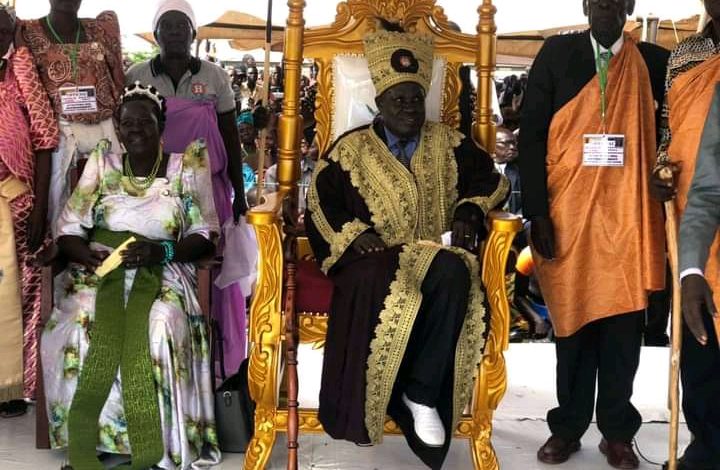Won Ateker Sends Independence Compliments to President Museveni

By Steven Enatu
SOROTI
His Royal Highness Raphael Otaya, the cultural leader of the Kumam people, has conveyed heartfelt compliments to His Excellency Yoweri Kaguta Museveni Tibuhaburwa, the President of the Republic of Uganda and Commander-in-Chief of the Uganda Armed Forces, ahead of the country’s 63rd Independence Anniversary, to be celebrated on October 9, 2025.
Speaking on behalf of the Kumam community, on Monday, 29th September, 2025, His Royal Highness Otaya extended warm greetings and best wishes to all Ugandans as the nation prepares to commemorate more than six decades of self-rule.
“On behalf of the Kumam people, I send compliments to His Excellency the President of the Republic of Uganda and Commander-in-Chief of the Uganda Armed Forces Yoweri Kaguta Museveni Tibuhaburwa on the 63rd Independence Anniversary celebrations of Uganda’s independence. Long live Uganda, long live Ugandans. For God and my country,” he declared.
He praised President Museveni for the disciplined army, the sustainable peace and the infrastructural developments,
“For e.g. roads, health centers, schools, growing economy, maintenance of fundamental human rights, and many others. Long live Yoweri Kaguta Museveni. Long live Uganda,” he said.
Uganda attained independence on October 9, 1962, and since then has been led by nine presidents:
Sir Edward Mutesa II (1963–1966), Dr. Apollo Milton Obote (1966–1971; 1980–1985), Gen. Idi Amin Dada (1971–1979), Prof. Yusuf Lule (1979).
Others are Godfrey Binaisa (1979–1980), Paulo Muwanga (1980, interim), Tito Okello Lutwa (1985–1986) and Yoweri Kaguta Museveni (1986–present).
These leaders have each shaped Uganda’s political landscape, with President Museveni being the longest-serving, in office since 1986.
This year’s national Independence Day ceremony will be held at Kololo Ceremonial Grounds in Kampala, under the theme “63 Years of Independence: A Reason to Double Our Efforts in Sustaining a United and Progressive Nation.”
Independence anniversaries are not only political milestones but also cultural turning points.
The revival of traditional and cultural institutions and establishment of others such as the Kumam leadership has been one of the significant outcomes of Uganda’s independence journey.
The revival of cultural institutions in Uganda was enabled by Article 246 of the 1995 Constitution of the Republic of Uganda which had been abolished in 1967 under Milton Obote’s government.
These institutions play a vital role in preserving cultural heritage, fostering unity, and complementing government efforts in promoting peace and development.


